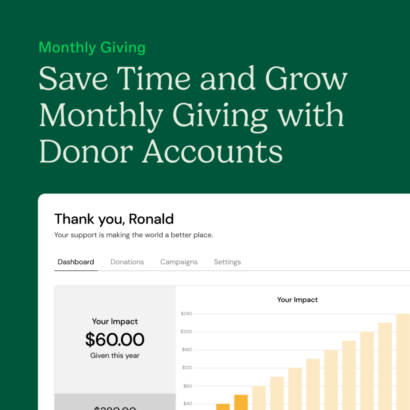The following is a guest post from James Gilmer, a compliance specialist with Harbor Compliance. We asked James to introduce our readers to the basics of charitable solicitation compliance and when fundraising online can trigger the need for charitable solicitation registration.
Forty-four states currently have laws regulating charitable solicitation. Forty-one states have a unique registration requirement. State registrations are separate from your federal 501(c)(3) exemption. Our goal with this post is to introduce the topic of charitable solicitation compliance. With some investment in compliance, you will help your organization stay on the right side of the law, avoid costly penalties, and form more meaningful relationships with your discerning donors!
What in the world is charitable solicitation compliance?
Many new nonprofit leaders are unfamiliar with charitable solicitation compliance. Even seasoned nonprofit directors are often unaware or do not understand the full extent, of the requirements.
Charitable solicitation registration takes place at the state level, typically with the Attorney General or the Charities Division of the Secretary of State. With each state that requires registration, your nonprofit will submit information on its program activities, fundraising activities, leadership, finances, evidence of IRS exemption, and more. There is typically a registration fee, and most states require you to re-register or renew, annually.
Compliance means abiding by registration requirements wherever you fundraise. Depending on where and how you fundraise, those requirements will vary. Some states require that you obtain a certificate of authority or appoint a registered agent, or ask for extra information if you hire a professional fundraiser or consultant.
If you fundraise online using a “Donate Now” button, for instance, you are technically soliciting funds in every state. That means you must comply with applicable registration requirements nationwide. Each state treats online fundraising differently, and you may be required to register in one state, but not have to in another. While not law, the Charleston Principles are an excellent starting point for what activities trigger registration.
Large charities that fundraise online typically find it easier just to register nationwide. However, small charities with limited activities and budgets typically pick-and-choose where they register, beginning with the state of incorporation. From there, smaller charities might register where they have received (or expect to receive) a large amount of contributions. To help ensure compliance, these charities list the states in which they are authorized to solicit funds on the donation pages of their websites.
Fundraising compliance is a lot to think about! Check out the Connecticut fundraising registration requirements as an example. If all of these requirements sound like a headache more than anything else, remember, there are service companies and other experts that can help.
Why is compliance important?
What is the point of all this additional work? States want to know that the charities soliciting funds from their state’s citizens are legitimate and that they have gone through the registration process. This helps protect citizens of that state from unregulated organizations.
Failure to register (or renew!) can lead to penalties up to $25,000 in some states. How would a hit like that affect your organization? In some other cases, the organization’s good standing with the state and tax exemption can be jeopardized, which can affect the board’s personal liability. Other states can deny your right to solicit funds altogether (see California, one of the strictest states in the country).
Fundraise with more success
Besides financial penalties, think of charitable solicitation registration as another way of making your donors feel comfortable making a contribution to your organization. While you’re researching prospective donors in your community, you should assume that they are researching your organization using the state’s online databases. Experienced donors regularly search for compliant organizations before they give a dime. In fact, many foundations and grantmakers request evidence of registration as part of your grant application. By registering wherever you solicit, you are helping reassure donors that they are making the right investment in your nonprofit.
Yes, IRS and state compliance can be boring, but it’s better than a major disruption to your cash flow, or organization as a whole. By investing in compliance, you stay on the right side of the law, inspire confidence in your donors, and help solidify your nonprofit’s place in the community.



